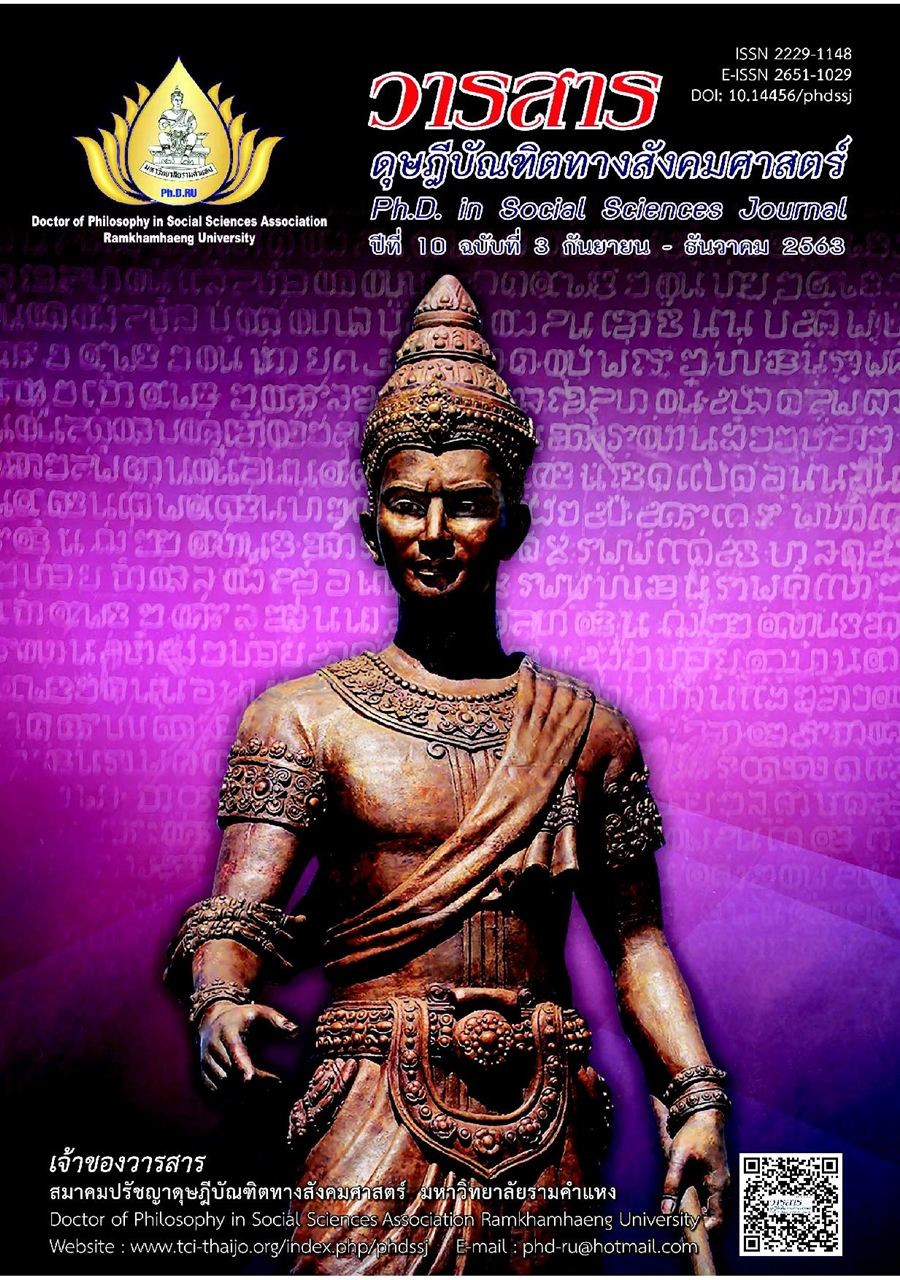A Core Competencies Enhancement Training Program for Bangkok Airways Personnel Using the Learning by Doing Principle
Main Article Content
Abstract
This research article aims to (1) study the required behavior according to core competencies of Bangkok Airways’ employees (2) create the core competency training program using the Action Learning principles for Bangkok Airways employees and (3) evaluate the core competency training program using Action Learning principles for Bangkok Airways employees. Population sampling was 24 employees of Bangkok Airways and analyzed the data by the sign test.
Findings are as follows: (1) The core competencies for Bangkok Airways employees consist of 5 aspects; Teamwork, Result Oriented, Understanding Customer, Skills of Communication, and Thinking Innovation. The 25 required behaviors were found to be at the most needed level, with a median of 4.00 and above, with the Inter Quartile Range of 0.00-1.00. (2) The results of the core competency training program building using the Action Learning principles for Bangkok Airways employees found that training programs had the highest level of appropriateness, 3.60-4.60 and consistency index from 0.80 to 1.00., And (3) The self-assessment of the participants showed that the supervisors behaved according to their core competency in teamwork and skills of communication after 10 weeks of training and before training at the .05 level of significance. The direct supervisors’ assessments showed that the supervisors and managers had all behavior based on core competency after 10 weeks of training significantly higher than before the training at the .05 level. The satisfaction of the trainees on the use of the core competence training program after the training was found to be high to highest level of satisfaction, average between 3.83-4.67.
Article Details
Academic articles, research articles, and book reviews in the Ph.D. in Social Sciences Journal are author’s opinions, and not the publisher’s, and is not the responsibility of the Ph.D. in Social Sciences Journal Philosophy Association, Ramkhamhaeng University. (In the case that research is done on human, the researcher has to be trained in Ethics for Doing Research on Human Training and has to produce the evidence of the training).
References
Aitken, K., & von Treuer, K. (2014). Organisational and leadership competencies for successful service integration. Leadership in Health Services, 27(2), 150-180.
Awakul, V. (1997). Training: Personal training and development manual. Chulalongkorn University Press. [In Thai]
Bergenhenegouwen, G. J., ten Horn, H. F. K., & Mooijman, E. A. M. (1997). Competence development: A challenge for human resource professionals: core competences of organizations as guidelines for the development of employees. Industrial and Commercial Training, 29(2), 55-62.
Chan, D. C. (2006). Core competencies and performance management in Canadian public libraries. Library Management, 27(3), 144-153.
Chatakarn, V. (2015). Action research. Suratthani Rajabhat Journal, 2(1), 29-49.
Choi, M. S. (2005). A case study of an action learning program: Can action learning be an approach to enhance a manager’s coaching skills?. Dissertation Abstracts International, 66(01), 2347-A. (UMI No. 3161575).
Draganidis, F., & Mentzas, G. (2006). Competency based management: A review of Systems and approaches. Information Management & Computer Security, 14(1), 51-64.
Marquardt, M. J. (2018). Optimizing the power of action learning (3rd ed.). Nicholas Brealey.
McClelland, D. C. (1973). Testing for competence rather than for intelligence. American Psychologist, 28(1), 1-14.
Mulder, M., & Collins, K. (2007). Competence Development in Organisation: Its use in practice. Retrieved from: https://www.ufhrd.co.uk/wordpress/wp-content/uploads/2008/06/muld-31-fp.pdf
Phuengramphan, C. (2016). The development of a training program for enhancing the teamlearning skills of government teachers under the jurisdiction of the Bangkok Metropolitan Administration. Doctoral Dissertation of Philosophy (Human Resource Development), Ramkhamhaeng University. [In Thai]
Pongpattarine, C. (2012). The development of a training model based on action learning concept to enhance performance for international education consultants. Doctoral Dissertation of Philosophy (Non-Formal Education), Chulalongkorn University [In Thai]
Roy, J. S. (2009). An analysis of business competencies important for entry-level managers in destination marketing organizations. Dissertation Abstracts International, 70(01), 1351-A. (UMI No. 3341871).
Sengupta, A., Venkatesh, D. N., & Sinha, A. K. (2013). Developing performance-linked competency model: A tool for competitive advantage. International Journal of Organizational Analysis, 21(4), 504-527.


